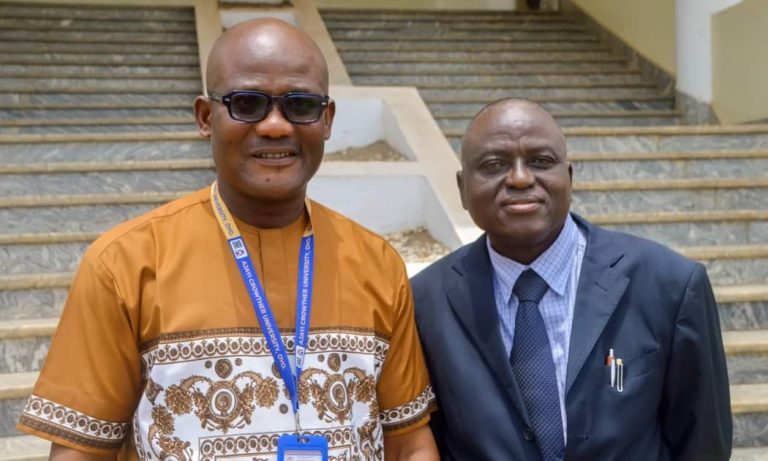The Deputy Vice-Chancellor of Ajayi Crowther University, Oyo, Prof. Muyiwa Popoola, has emphasised the critical role of communication in ensuring effective university administration, stating that “without appropriate communication skills, achieving administrative efficiency in higher institutions would be challenging.”
Popoola made this assertion while delivering a lecture at a workshop organised by the ACU Registry Department on Tuesday at the university’s campus.
The workshop was attended by key university officials, including the Vice-Chancellor, Prof. Timothy Adebayo; Acting Registrar, Ven. Olusegun Ojo; the Bursar’s representative, Mathew Taiwo; and the Librarian, Dr. Bosede Ajiboye.
In his lecture titled ‘Communication Skills: Required Tools for Effective Administration,” Popoola underscored the importance of clarity, conciseness, correctness, completeness, concreteness, courtesy, and candidness—referred to as the “7C’s of effective communication”—in the administrative operations of any university.
“Because communication can be a philosophy, worldview, attitude, dos and don’ts of a source, which can be a human being, to another entity, which can be a person, group, or organization, known as the receiver through a medium for mutual understanding, it is therefore expedient for us to be acquainted with these 7C’s of effective communication,” Popoola said in a statement on Wednesday.
He stressed that university staff must ensure their messages are structured and organised, which requires a deep understanding of the subject being addressed.
“Whenever you speak in public, you should be honest and sincere. Your message should be truthful, and your lessons should be fair to yourself and others involved in the situation. Honesty boosts self-confidence, and in oral communication, confidence is a key element to making an impact,” he stated.
Popoola further highlighted the importance of clarity in communication, arguing that a vague and ambiguous message fails to capture attention.
“Imagine a speaker who is talking about something that is very vague and ambiguous. Would such a speaker grab your attention? Clarity is therefore a must in public speaking,” he added.
Beyond verbal skills, the professor of communication and university administrator also stressed the importance of writing and non-verbal communication in administration.
He noted that non-verbal cues often reveal the emotional state of a message sender and help reinforce messages.
“Non-verbal cues also help to show the emotional status of the message sender. Body language includes nodding or shaking of the head, body orientation, body positioning, and spatial communication,” he explained.
“These communicative skills are among the most pertinent ones that can guarantee successful university administration. By mastering and practicing them, administrative staff can build trust and credibility in the institution,” Popoola added.
He also called for the regular training of university staff to keep them abreast of evolving communication strategies and trends in higher education management.
“It is through regular training and workshops that emerging communication issues, trends, and concepts in university administration can be discussed and analyzed for development,” he noted.
The workshop reaffirmed the university’s commitment to strengthening its administrative structures through enhanced communication strategies, ensuring a more efficient and transparent governance system.
